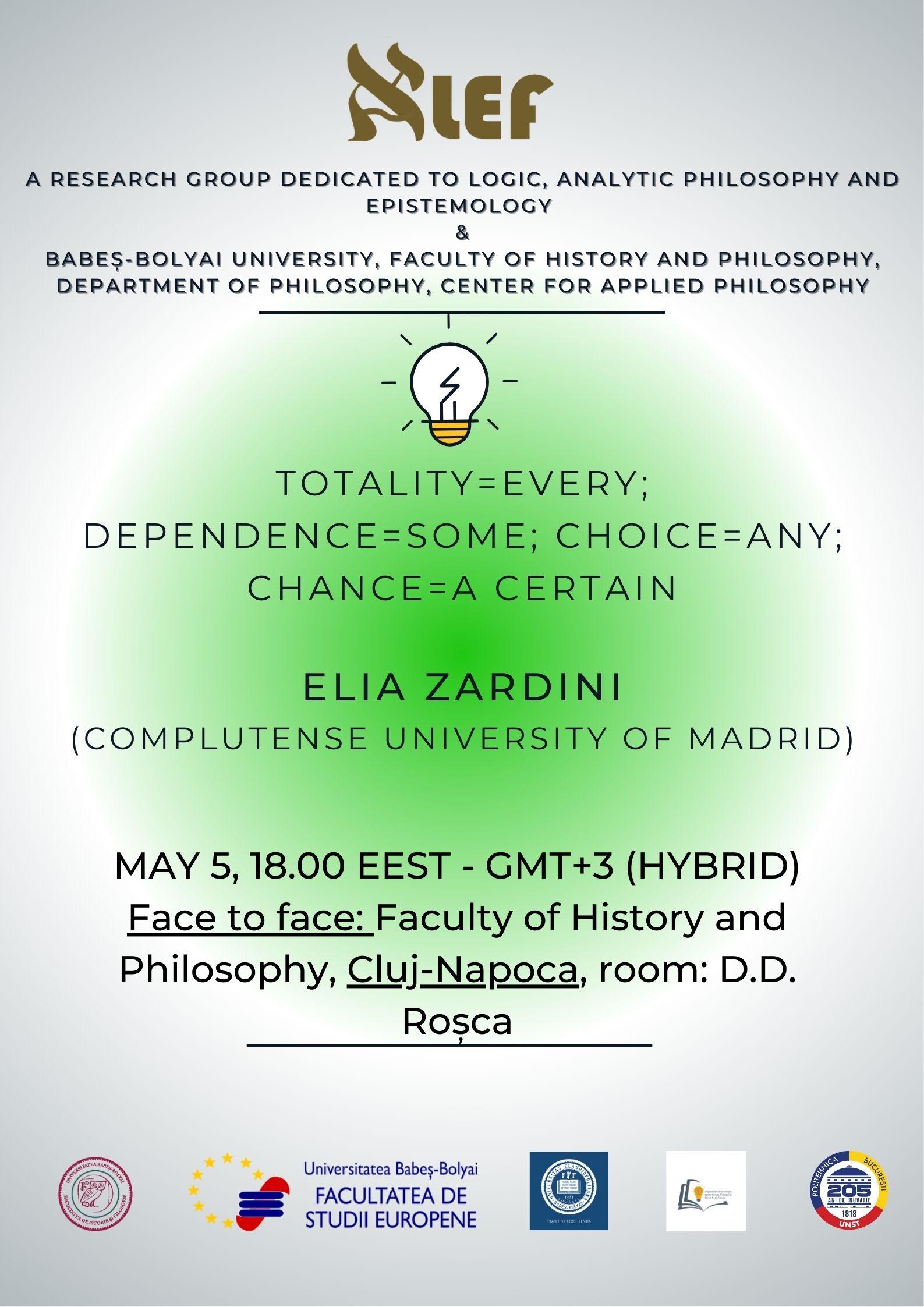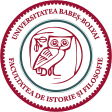5 mai 2025
Conferința Totality=Every; Dependence=Some; Choice=Any; Chance=A Certain, Dr. Elia Zardini
ALEF (A Research Group dedicated to Logic, Analytic Philosophy and Epistemology) și Facultatea de Istorie și Filosofie (Departamentul de Filosofie/Centrul de Filosofie Aplicată) vă invită la conferința Totality=Every; Dependence=Some; Choice=Any; Chance=A Certain susținută de către dr. Elia Zardini (Complutense University of Madrid). Evenimentul va avea loc luni 5 mai 2024, de la ora 18.00 în sala D.D. Roșca, Clădirea Centrală a UBB Cluj-Napoca, str. M. Kogălniceanu nr. 1, etaj 1.
Noncontractive logics have found interesting applications to the paradoxes of selfreference (among other philosophical problems). Yet, while their proof theory and formal semantics are relatively well-understood and developed, they still lack a general informal interpretation in broadly truth-theoretic terms that makes sense of their distinguishing features. This paper aims to provide just that. In more detail, I’ll first propose an interpretation of the multiplicative/additive distinction among operators arising in a noncontractive logic (focusing mostly on the quantifiers): multiplicative operators represent taking their operands together (with universal quantification representing totality and particular quantification representing dependence) whereas additive operators represent arbitrarily taking an operand (with universal quantification representing choice and particular quantification representing chance). I’ll then argue that the conceptual resources used by the proposed interpretation are by no means idiosyncratic, but widespread in all areas of our thought and talk. In particular, reflection on the behaviour of natural-language determiners points towards a very natural working hypothesis that associates: multiplicative universal affirmative with ‘every’; multiplicative particular affirmative with ‘some’; additive universal affirmative with ‘any’; additive particular affirmative with ‘a certain’. I’ll illustrate the fruitfulness of this hypothesis with four examples, from the epistemic, normative, attitudinal and stative domains respectively. I’ll close by drawing the consequence this hypothesis has for a novel type of revision of classical logic.


